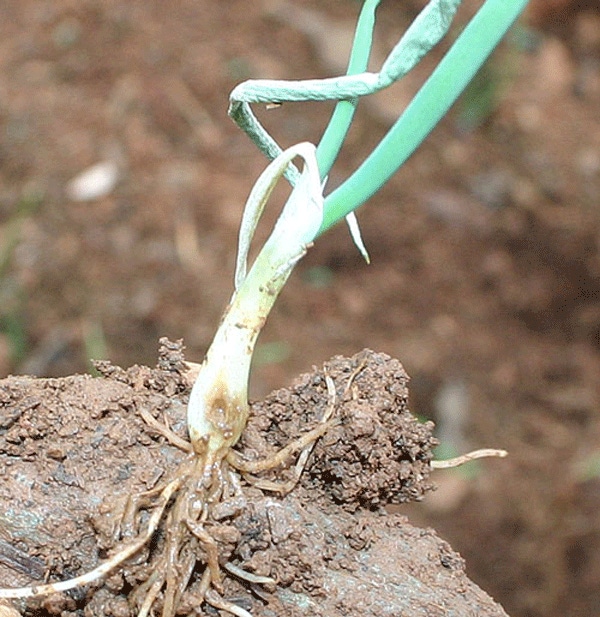March 31, 2011

Cold, rainy weather has delayed vegetable planting in the Carolinas and Virginia and that may not be a bad thing because of a threat from seedcorn maggots to early-planted vegetable crops.
North Carolina State Extension Entomologist Mark Abney says he has received reports of this pest causing damage to a number of vegetable crops from across the state over the past couple of weeks.
Debbie Roos, an agricultural Extension agent in Chatham County in the Piedmont area of central North Carolina, is one of those reporting damage.
“I have heard from several growers that they are having problems with seedcorn maggots this spring. One grower lost 500 onion plants that had just been transplanted, and others are having problems with them in brassica crops,” Roos says.
Seedcorn maggots are the larval stage of a fly that infests the seeds and roots of many different vegetable crops. The cool, wet conditions this spring have been ideal for this pest. Seed corn maggots also prefer feeding in soils with high organic matter.
Abney says once the weather warms up and plants are growing faster they are not as susceptible to the pest.
“March and early April is the prime time for seed corn maggots and it is kind of a crap shoot with planting crops during this period. If conditions are right, there is not much you can do other than use row covers to inhibit egg-laying activity of the adult fly. If eggs have already been laid, then row covers won’t do much good,” Abney adds.
These maggots like moisture, so try not to give more water than the plants need. Crop rotation and sanitation is extremely important and you never want to leave onion culls in the field, because they can harbor larvae that later mature and re-infest fields.
Planting as late as possible in the spring allows for rapid seedling establishment, but may conflict with market demands. Avoid planting in soils that are high in under-composed organic matter.
Roos says planting larger transplants also seems to help reduce damage from seedcorn maggots. Larger transplants tend to grow out faster, reducing the risk, she explains.
If soil is amended with manure, then you want to leave plenty of time for it to decompose before planting. Post-harvest plowing to bury and rapidly decompose crop residues will help to reduce over-wintering populations, she adds.
About the Author(s)
You May Also Like






